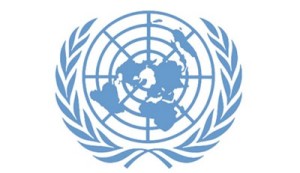 United Nations Secretary-General António Guterres announced on July 12, 2018, the launch of a High-Level Panel on Digital Cooperation. The Panel has a total of 20 members, representing a cross-section of expertise from governments, corporations, civil society, academia and what it calls the “technical community.” Melinda Gates, Co-Chair of the Bill & Melinda Gates Foundation, and Jack Ma, Executive Chairman of Alibaba Group, have been appointed by the Secretary-General as Co-Chairs. It is supported by a small Secretariat funded by donor resources, and based in New York and Geneva, headed by Amandeep Singh Gill of India and Jovan Kurbalija of Serbia.
United Nations Secretary-General António Guterres announced on July 12, 2018, the launch of a High-Level Panel on Digital Cooperation. The Panel has a total of 20 members, representing a cross-section of expertise from governments, corporations, civil society, academia and what it calls the “technical community.” Melinda Gates, Co-Chair of the Bill & Melinda Gates Foundation, and Jack Ma, Executive Chairman of Alibaba Group, have been appointed by the Secretary-General as Co-Chairs. It is supported by a small Secretariat funded by donor resources, and based in New York and Geneva, headed by Amandeep Singh Gill of India and Jovan Kurbalija of Serbia.
The Panel will hold its first in-person meeting in late September 2018 and is expected to submit its final report to the Secretary-General within nine months. The Panel will undertake a wide range of public consultations, including at least two public events and an open process inviting global inputs including through online engagement activities starting in September. Follow on Twitter @UNSGdigicoop for updates.
The Secretary-General has asked the Panel to contribute to the broader public debate on the importance of cooperative and interdisciplinary approaches to ensure a safe and inclusive digital future for all taking into account relevant human rights norms. The Panel is expected to identify policy, research and information gaps, and make proposals to strengthen international cooperation in the digital space.
“Digital technologies make a significant contribution to the realisation of the Sustainable Development Goals and they cut uniquely across international boundaries,” saidGuterres. “Therefore, cooperation across domains and across borders is critical to realizing the full social and economic potential of digital technologies as well as mitigating the risks that they pose and curtailing any unintended consequences.”
This is the latest in a long line of UN initiatives focused on ICT4D and Tech4Good – initiatives looking at how various computer and Internet technologies benefit, or could benefit, individuals, communities, causes and the environment. Various United Nations offices have launched initiatives to promote the use of computers, feature phones, smart phones and various networked devices in development and humanitarian activities, to promote digital literacy and equitable access to the “information society,” and to bridge the digital divide. These UN Tech4Good initiatives are listed here. The first was the Digital Opportunities Task Force (DOT Force), established in July 2000.
